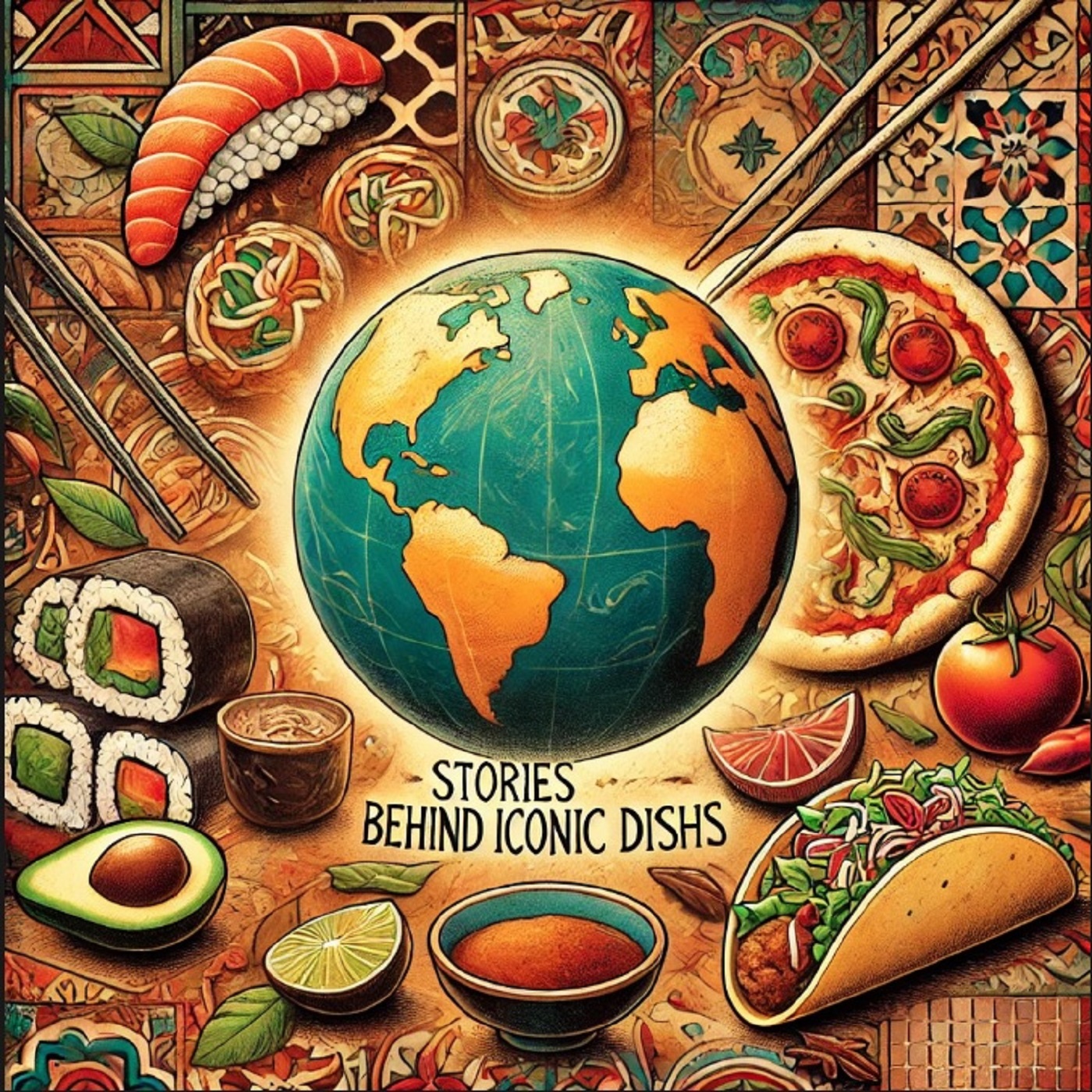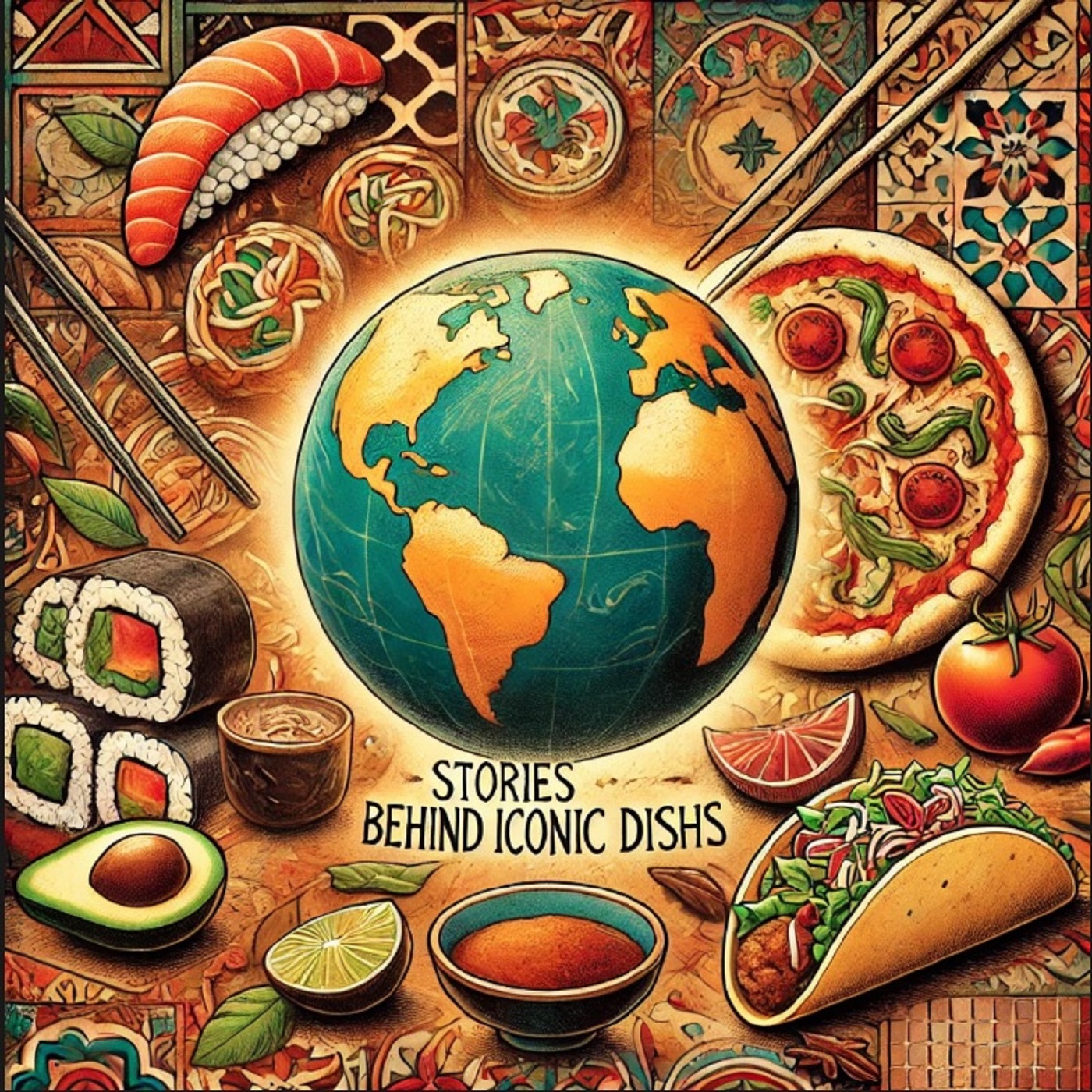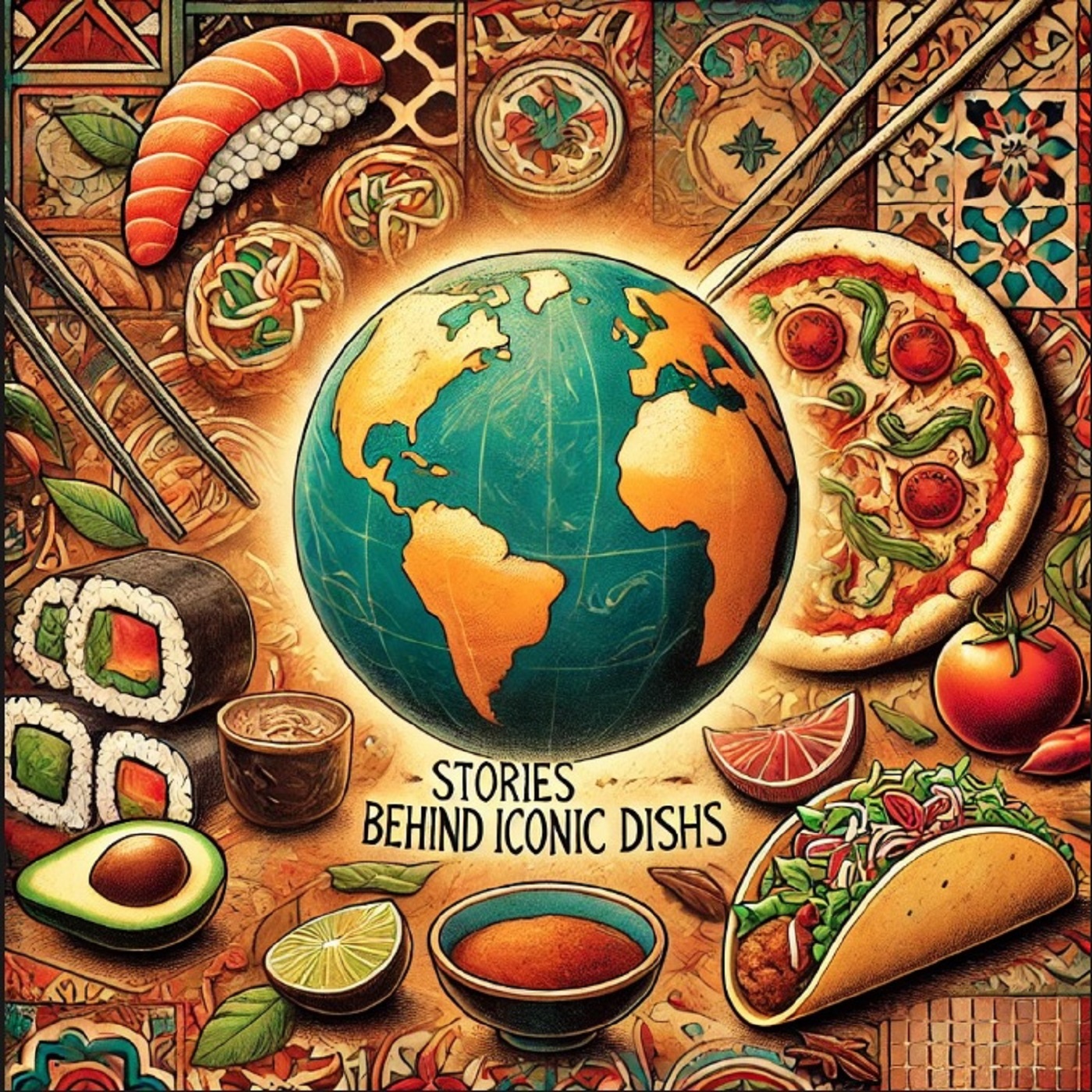This episode explores falafel’s origins, anatomy, cultural symbolism, and global journey. Believed to have originated in Egypt as ta’amiya made from fava beans, falafel spread throughout the Middle East, where chickpeas became a staple ingredient. Today, debates over its true birthplace highlight the dish’s deep cultural roots across Egypt, Palestine, Israel, Lebanon, and beyond.
Listeners discover the art of crafting falafel—ground legumes mixed with herbs, garlic, onions, cumin, and coriander, fried to golden perfection, and often served in pita with tahini, hummus, and salad. More than a recipe, falafel is a dish of identity, resilience, and pride, embraced as a national food by multiple countries and celebrated as a daily staple.
The episode also traces falafel’s migration worldwide, becoming a beloved street food in Europe, North America, and Asia. Modern chefs reinvent it with colorful twists and healthier versions, proving its adaptability. Ultimately, falafel is shown as more than a snack—it is a symbol of culture, survival, and community, carrying centuries of shared history in every bite.

This episode explores phở, the beloved Vietnamese noodle soup that has become a symbol of the nation’s history, resilience, and culinary grace. Originating in...

This episode explores the deep cultural, historical, and symbolic importance of kimchi, Korea’s national dish. Tracing its roots back over 2,000 years, we see...

This episode explores the history and artistry of Thai green curry (gaeng keow wan), a fragrant and vibrant dish that reflects Thailand’s culinary balance...